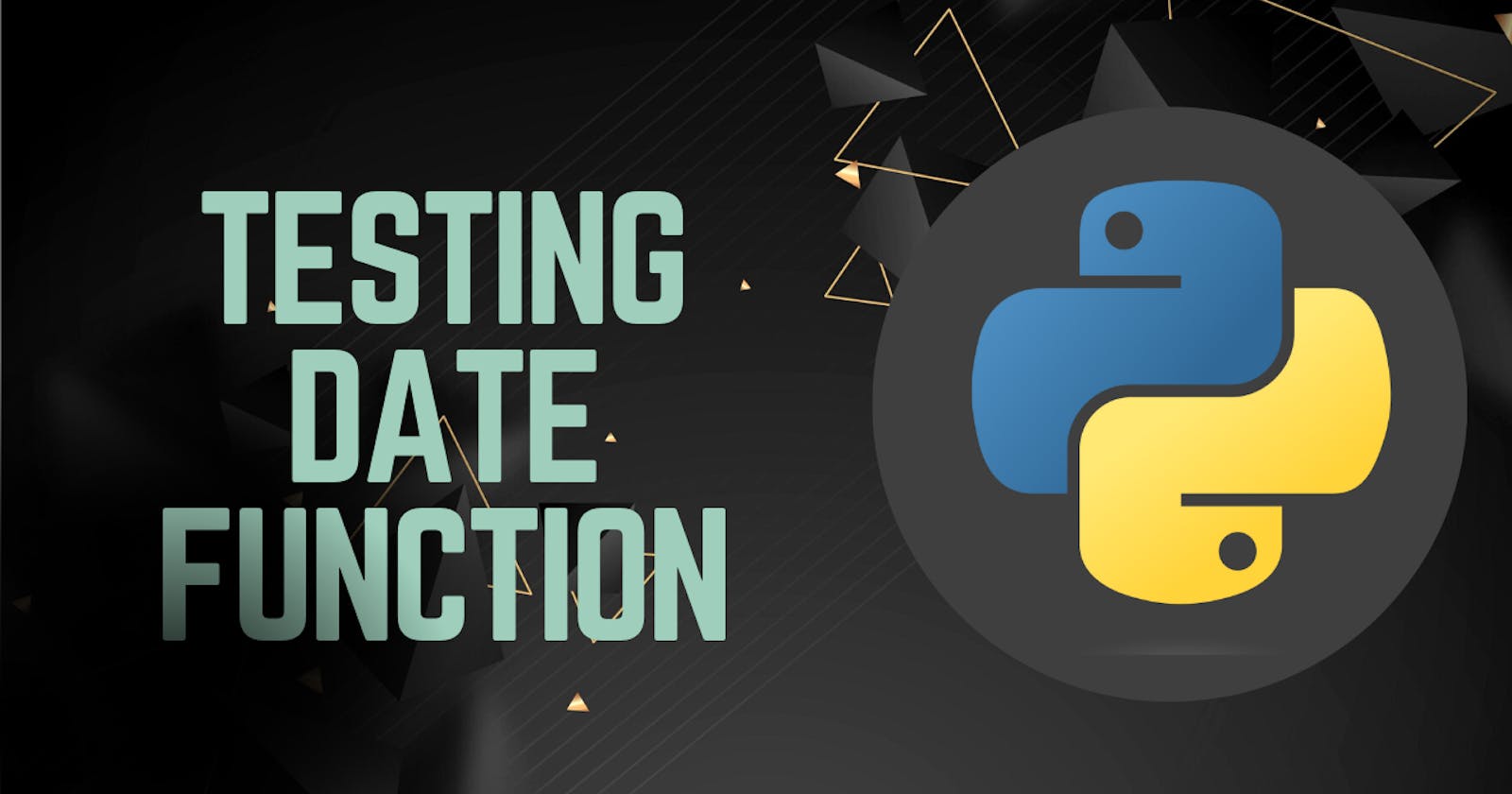Greetings, Python enthusiasts and curious coders! Today, I'm excited to share with you a tale from my coding adventures – specifically, the intriguing challenge of testing a function that returns today's date in Python. It's a journey filled with practical solutions, a touch of magic (mocking magic, to be precise), and some important lessons. So, grab a cup of your favorite beverage, and let's dive in!
The Quest Begins: The Simple Yet Tricky Date Function
Let's set the stage with our star player, a simple function named get_today_date. Its mission is straightforward – to fetch and return the current date. Here's how it looks in Python:
from datetime import datetime
def get_today_date():
return datetime.now().date()
It's a simple piece of code, but as we'll see, even the simplest code can lead to complex testing scenarios.
The Twist: Testing a Moving Target
Testing static functions is a breeze, but testing a function that returns a dynamic value like the current date? That's where the real challenge lies. We need our tests to be consistent, regardless of the actual date. This is where I introduce a clever trick up my Python sleeve – unittest.mock.
The Magic Trick: Mocking the Date
Using the unittest framework, along with unittest.mock, I conjure a controlled environment where datetime.now() is under our spell, always returning a fixed, predictable date.
Here's a test case for our get_today_date function:
import unittest
from unittest.mock import patch
from datetime import datetime
from my_module import get_today_date # Replace 'my_module' with your actual module name
class TestGetTodayDate(unittest.TestCase):
@patch('my_module.datetime') # Again, replace 'my_module' with your actual module name
def test_get_today_date(self, mock_datetime):
mock_date = datetime(2024, 1, 19)
mock_datetime.now.return_value = mock_date
result = get_today_date()
self.assertEqual(result, mock_date.date())
if __name__ == '__main__':
unittest.main()
This test ensures our function is behaving as expected, but as with any magic, there are caveats.
The Caveats: Unveiling the Shortcomings
1. Over-Reliance on Mocking
By using unittest.mock, we're testing in an artificial bubble. It's perfect for consistency but can potentially hide issues in handling real-world date scenarios.
2. Ignoring Real-World Scenarios
The test blissfully skips over the ever-changing nature of real dates. It doesn't account for complexities like time zones or daylight saving time.
3. Maintenance Overhead
Setting up these mocks across multiple tests can be cumbersome, adding extra maintenance and complexity.
4. Risk of False Positives
Just because the test passes with the mocked date doesn't guarantee the absence of bugs in date handling.
5. Framework Limitations
This approach is tailored for unittest. Switching frameworks could mean a significant overhaul of our testing strategy.
The Conclusion: A Mixed Bag of Tricks
Despite these challenges, the mocking strategy is a valuable tool in our Python testing arsenal, especially for functions dealing with dates. However, it's crucial to complement this approach with additional testing strategies to ensure robustness and real-world applicability.
So there you have it – a glimpse into the intricate dance of testing date functions in Python. It's a blend of precision, foresight, and a bit of magic, all wrapped up in the pursuit of reliable, bug-resistant code. Keep experimenting, keep learning, and most importantly, keep enjoying the journey of coding! 🎩✨🐍💻📅

